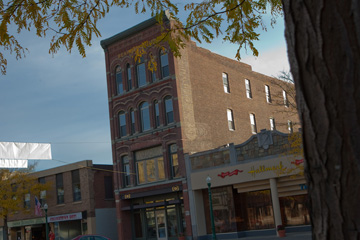
04/07/2015
A new course offered at SUNY Cortland aims to meet non-profit needs with creative solutions, with the eventual goal of students taking an entrepreneurial approach to solve societal issues.
Community Innovation Lab, a special topics course in sociology, has matched eight students with four local projects this semester dealing with fundraising, marketing, health program promotion and the social transition that comes after incarceration.
The students will detail their work as part of a Sandwich Seminar talk on Thursday, April 30, from noon to 1 p.m. in Brockway Hall Jacobus Lounge.
“The projects all are centered around the idea of capacity-building for not-for-profits,” said Richard Kendrick, the director of the College’s Institute for Civic Engagement (ICE) and a professor of sociology/anthropology. “The idea is not necessarily that we go in and we perform a service for them, but that we help the organizations build their own capacities to get things done.”
The inaugural semester’s projects include:
- A jail transition project performing a needs assessment of current services in place for prisoners after they are released.
- An Access to Independence bowl-a-thon aiming to raise funds and secure sponsorships for an event that benefits the agency that exists to help people with disabilities.
- A 2-1-1 marketing plan for the Seven Valleys Health Coalition so that callers know about the resource that connects them with health and human services programs.
- An evaluation of the Majority Rules social norming campaign, building on the college-focused program implemented in fall 2014 to change perceived norms about alcohol consumption.
Kendrick said the class is a first step towards establishing coursework in social entrepreneurship that eventually could be paired with SUNY Cortland’s business economics classes on a similar topic to create a minor program.
He leads the course along with Barbara Barton, an assistant professor of health, and Cyndi Guy, the ICE’s community innovation coordinator.